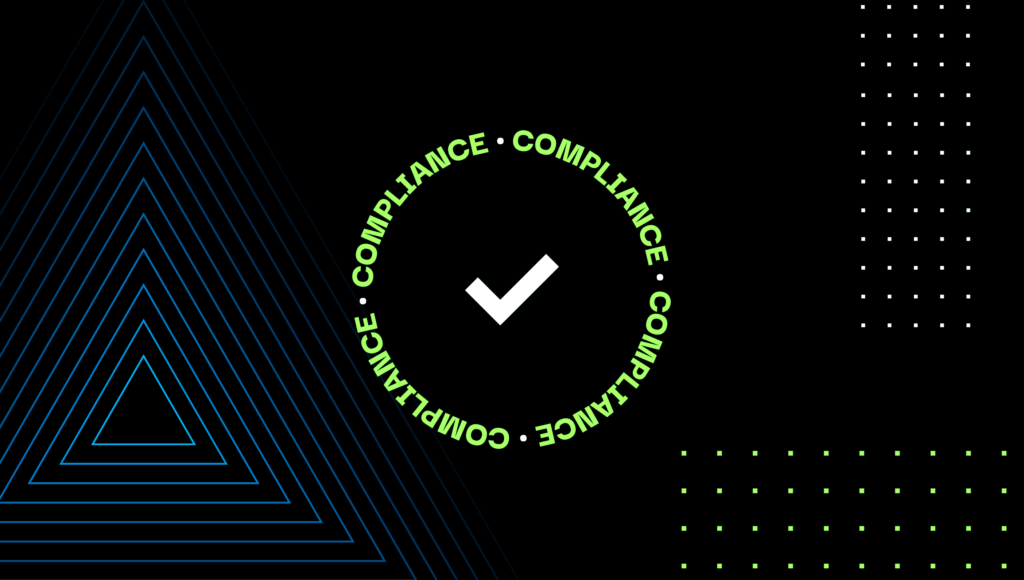
Whether you are a manager preparing for a merger or a finance professional seeking to enhance your knowledge, it is crucial to possess the ability to accurately evaluate the financial well-being of a company.
This article delves into the significance of due diligence checklists, outlines their essential elements, and offers a universal template ready-to-use.
What is due diligence?
Due diligence refers to the process of examining and assessing information about a company, which is crucial for ensuring that all relevant details are accurately understood and assessed before a business transaction. The process usually includes an investigation of financial records, legal contracts, operational procedures, and supply chain management.
The purpose of due diligence is to uncover any potential issues or red flags that could affect the deal. By conducting due diligence, companies can make informed choices, mitigate risks, and maximize the chances of success.
To make the process of due diligence more efficient and secure, organizations often use virtual data rooms. These are online platforms designed to store and share confidential business documents. Data rooms enable seamless collaboration among stakeholders, streamline document management, and provide advanced security features.
Data rooms for due diligence
Overall rating:
4.9/5
Excellent

Overall rating:
4.8/5
Excellent

Overall rating:
4.7/5
Excellent
How long does due diligence take?
The duration of due diligence can vary significantly. Typical due diligence for small to mid-sized businesses can take one to two months, while for bigger organizations, it may extend to three to six months or even longer.
Here are the key factors influencing the duration of due diligence:
- The complexity of the transaction. More complex deals may require longer periods of due diligence to thoroughly assess all aspects.
- Availability and accessibility of information. If information is readily accessible and well-organized, due diligence may be completed more quickly.
- The number of parties involved. Coordinating due diligence among multiple parties can extend the timeline.
- Scope of investigation. The depth of the examination required to uncover potential risks and liabilities also influences the duration.
- Negotiation process. The time required for negotiating terms and resolving any issues identified during due diligence can impact the duration, too.
What is a due diligence checklist?
A due diligence checklist is a structured way to investigate a company that a business plans to acquire through a sale, merger, or other means. By adhering to this checklist, businesses can gain insight into a company’s assets, liabilities, material contracts, benefits, and potential issues.
Typically, a due diligence checklist helps in the following use cases:
- Developing audited financial statements
- Preparing to finance a private or public transaction
- Preparing annual reports
- Preparing for a joint venture
- Conducting general risk management
- Setting for an initial public offering (IPO) or other fundraising activity
While due diligence checklists follow a basic format, they can be customized to suit various industries. Typically, due diligence documents include information about an organization’s financial and legal operations, intellectual property, human resources, marketing and sales data, and more.

Why is a due diligence checklist important?
The primary purpose of the process of due diligence checklist completion is to ensure that no crucial aspect is overlooked when buying a business. In particular, using a checklist helps to:
- Collect impactful business information that is not publicly available. Since the majority of information required for due diligence cannot be easily accessed, businesses can prioritize what information to request, collect, and analyze for making a sound decision.
- Assess risks that come with the purchase. Utilizing a due diligence checklist enables investors to identify the obligations, liabilities, problematic contracts, intellectual property issues, and litigation risks that come with the purchase.
- Make decisions on the viability of an investment. Last but not least, a due diligence checklist helps buyers determine whether their target company is a suitable match for their business. It helps to investigate the duration, the cost of integration, as well as potential revenue coming from a deal.
What should my company include in the due diligence checklist?
There are different approaches to putting together due diligence documents, but we’ve created a universal due diligence checklist template that applies to every use case.
Legal documents
Legal documents are crucial to the due diligence process as they provide insights into the company’s legal and regulatory compliance, obligations, potential liabilities, and risks which may serve as red flags for a buyer:
- Articles of incorporation/organization – a company’s legal structure and governing rules, ownership structure, compliance with legal requirements
- Bylaws/operating agreement of the company and its subsidiaries – internal rules and procedures governing business operations
- Contracts and agreements – all contracts and agreements that the company is a party to, such as customer contracts, vendor agreements, lease agreements, and employment contracts
- Regulatory and compliance documents – all licenses, permits, and regulatory filings required for the company’s operations
- Litigation and claims documents – all lawsuits, claims, and disputes involving the company
- Insurance policies – insurance policies held by the company, which can help to assess the company’s insurance coverage and potential risks.
Intellectual property documents
IP documents provide insights into the organization’s IP portfolio, potential infringement risks, and licensing agreements. Here’s what they should consist of:
- Patents – documents that grant an inventor the exclusive right to make, use, and sell an invention
- Trademarks – documents that protect a company’s brand, logo, and other identifying marks
- Copyrights – the company’s creative works protection including software, music, design, and literature, and other assets
- Trade secrets – confidential information that provides a competitive advantage, such as customer lists, suppliers list, secret formulas, and governing practices
- Licensing agreements – documents that grant or receive permission to use another party’s IP
- IP litigation records – documents detailing any IP disputes involving the company
- IP due diligence reports – reports from previous due diligence efforts on the company’s IP portfolio
Organization and good standing documents
Good standing and organizational documents are critical to the due diligence process as they describe the company’s legal standing, compliance with regulations, and financial performance. Reviewing these documents can help the buyer verify the legitimacy of the company:
- Certificate of incorporation or formation – a document that establishes the company as a legal entity and describes its purpose
- Bylaws or operating agreement – a document that outlines the company’s internal rules and procedures, such as how board members are elected, how meetings are conducted, etc.
- Business licenses and permits – documents that provide legal authorization for the company to operate in a particular jurisdiction or industry
- Annual reports – reports that detail the company’s financial performance and activities for the previous year
- Tax returns – documents that show the company’s income, expenses, and taxes paid for a given year
- Registered agent information – a document that lists the company’s registered agent, who is responsible for receiving legal documents on behalf of the company
- Good standing certificate – a document that confirms that the company is in good standing with the state or country where it is incorporated
Financial documents
Financial due diligence is also important as it helps to objectively evaluate an organization’s financial health based on its balance sheets, tax payments, income statements, and projected growth. Here are key documents to include:
- Income statements – statements showing a company’s revenue and expenses over a specific period of time, preferably over the last 5 years
- Balance sheets – a snapshot of a company’s financial position, including its assets, liabilities, and equity
- Cash flow statements – a company’s inflows and outflows of cash over a period, which can help to assess its liquidity and ability to meet financial obligations
- Accounts receivable and payable reports – the amount of money owed to the company by customers and suppliers
- Debt schedules – a company’s outstanding debts, including their terms and payment schedules
- Capitalization table – the ownership structure of a company, including the percentage ownership of each shareholder and the types of securities issued
- Budgets and forecasts – a company’s projected financial performance, which can help to assess its growth potential and identify potential risks and opportunities
Taxes
Tax documents are critical to the due diligence process as they provide important information about the company’s tax compliance and potential tax liabilities:
- Tax information for the last five years — governmental audits, IRS Form 5500 for 401(k) plans, tax sharing, transfer pricing agreements, and settlement documents.
- Tax returns – information on the seller’s income, deductions, and tax liabilities for the past several years
- Sales tax returns – information on the seller’s sales tax liabilities
- Property tax records – documents that provide information on the property’s assessed value, tax assessments, and tax payments
- Payroll tax records – documents that provide information on the seller’s payroll taxes, including payroll tax returns, W-2 forms, and 1099 forms
- Tax audits – documents related to any tax audits or disputes that the seller may have had
Human resources documents
Human resources documents are an integral part of a due diligence checklist since they allow us to assess the company’s labor costs, human capital, employment practices, and retention risks, which therefore can influence the final purchase price. Key documents and information to include are:
- Organizational chart – the company’s management structure, key departments, and employees
- Employee handbook – the company’s policies and procedures
- Employment agreements – the terms and conditions of employment for executives and key employees, which can help to assess the company’s retention risks and obligations
- Payroll record – employee compensation, benefits, and taxes, which can help to assess the company’s labor costs
- Employee files – personnel files for all employees, which can help to assess the company’s compliance with employment laws
- Employee benefit plans – the company’s employee benefits, including health insurance, retirement plans, stock options, and stock purchase agreements
- Workers’ compensation and disability insurance policies – the company’s insurance coverage for workplace injuries and disabilities
- Training and development records – employee training and development programs, which can help to assess its human capital management practices
Contract documents
Contract documents allow evaluating company’s relationships with its customers, suppliers, and employees, as well as its legal and financial obligations:
- Customer and supplier contracts – key agreements with customers and suppliers, like purchase agreements
- Lease agreements – the company’s lease agreements for its office space, production facilities, or equipment
- Employment agreements – the company’s agreements with key employees
- Partnership and joint venture agreements – the terms and conditions of any partnerships or joint ventures that the company is involved in
- Licensing agreements – any licensing agreements that the company has in place for its intellectual property
- Loan agreements – any loans that the company has taken out
Real estate and property documents
Real estate documents contain information about the property’s ownership, boundaries, zoning, environmental audits, building compliance, and tenant relationships:
- Property deeds – proof of ownership of the property
- Property surveys – physical boundaries of the property, ensuring that the property lines are accurate and there are no encroachments or zoning violations
- Property titles – proof of the seller’s ownership of the property, ensuring that there are no liens or other encumbrances on the property that could affect the buyer’s ownership
- Zoning documents – information about the property’s zoning classification and any restrictions on the property’s use
- Environmental reports – any environmental hazards or contamination on the property
- Building permits and inspections – any permits or inspections for the property’s buildings and structures, ensuring that the property is up to code and compliant with local regulations
- Leases and rental agreements – information about any leases or rental agreements for the property, demonstrating all existing tenant relationships or lease obligations
- Liabilities and obligations – mortgages, property taxes, utility payments, and maintenance agreements.
Sales and marketing documents
Sales and marketing documents serve as an extra layer of information allowing to assess the company’s competitive and financial potential. Here’s what they should consist of:
- Sales reports – information on the seller’s sales performance, including sales revenue, customer demographics, and sales trends
- Marketing plans – information on marketing strategies, including target markets, advertising campaigns, and social media presence
- Customer lists – information on the seller’s customer base, including customer names, contact information, and purchase history
- Advertising and promotional materials – insights on advertising and promotional activities, including print ads, online ads, and promotional emails
- Market research – information on the seller’s market research efforts, including market surveys and focus groups
Tips for due diligence checklist organization
Robust due diligence is crucial for the success of any merger or acquisition, as research shows that between 70 and 90% of planned M&A deals fail, with poor due diligence being one of the common reasons.
Here are a few tips to keep in mind to maximize the efficiency of your due diligence process:
- Making a clear structure and giving clear names to the folders. Organize your due diligence checklist in a set of clear folders and sub-folders. Make sure all document titles are search-friendly. Follow the guiding principle of creating an intuitive library of documents – easy to access, navigate, and review.
- Keeping the documents up to date. Keep all the documents in the checklist up to date to avoid delays and ensure that all the information provided is accurate. Outdated information can lead to unnecessary confusion and jeopardize the deal.
- Stamping the documents with watermarks. Use digital watermarks to protect sensitive data against leaks or unauthorized distribution. Watermarks make it easy to track all the latest changes and accesses to the documents.
- Inviting M&A experts and consultants to assist with due diligence. Hire experts to assist with the M&A due diligence process. They can provide valuable insights and identify potential issues related to the M&A transaction. They can also help create a tailored M&A due diligence checklist.
- Using proper software for due diligence. For maximum confidentiality, consider using specialized virtual data rooms instead of Google Drive or other unsafe means. Data rooms provide advanced security features, including access controls, permission levels, and audit trails, making it a safe place to exchange data during due diligence.
How can data rooms help with the due diligence checklists?
Since due diligence is mostly conducted in a virtual data room, some of the best data rooms on today’s market offer ready-made due diligence checklists. These can be tailored to specific business needs or used as they are.
Use our ultimate checklist presented above or use the one suggested by your virtual data room provider. Check out the rating of top data room providers on our website and choose a preferred option for your due diligence process.
Wrapping up
- Due diligence checklist is a structured list of documents that a business uses to investigate the target company through a sale, merger, or other means.
- Due diligence is important because it allows a potential buyer to collect structured information in one place, assess risks, and make an investment decision.
- We’ve created an ultimate due diligence checklist that is applicable to most use cases. Consider using it to save tons of time and effort on due diligence preparation.


